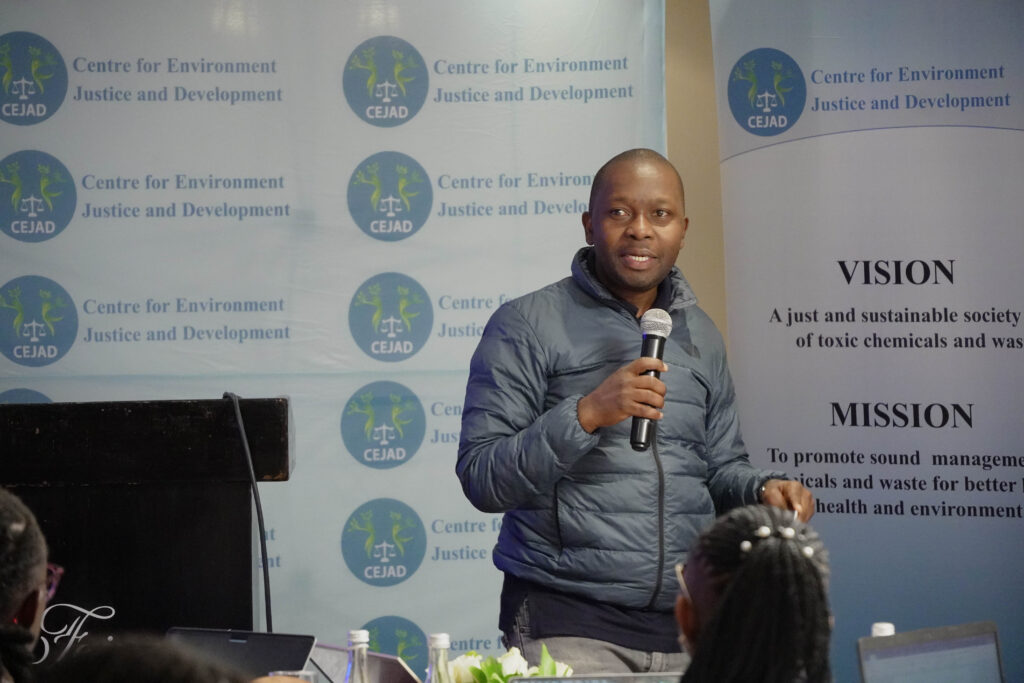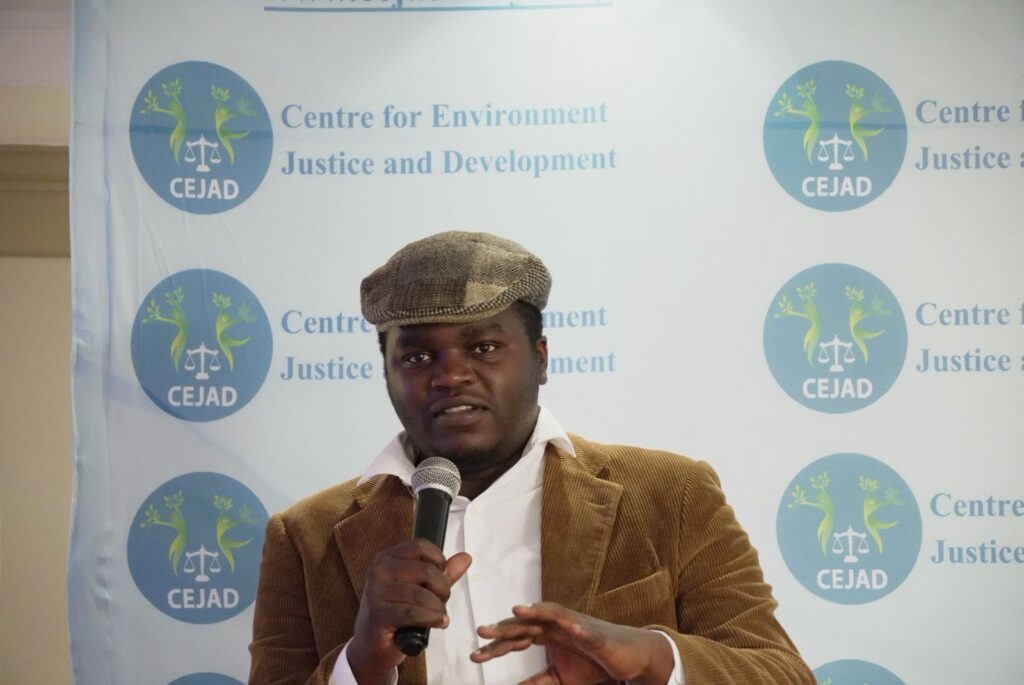By Victoria Musimbi Masaya
As world leaders prepare to convene in Geneva for the resumed fifth session of the Intergovernmental Negotiating Committee (INC-5.2) on the Global Plastics Treaty, Kenyan civil society organizations and waste picker representatives are issuing a united call: the world needs a bold, legally binding plastics treaty that prioritizes health, equity, and environmental justice not corporate profit.

The Kenyan Civil Society Coalition to End Plastic Pollution is urging African governments to speak with one voice and demand a treaty that protects both people and the environment from plastic pollution across its entire lifecycle from production to disposal. In the lead-up to the negotiations, the Centre for Environment Justice and Development (CEJAD), in partnership with the Heinrich Böll Foundation, recently convened a strategic meeting in Nairobi that brought together civil society organizations to align positions and amplify Africa’s voice in shaping the global plastics treaty.
“This is an opportunity for Africa to assert its position, protect its people, and shape an ambitious, legally binding treaty that delivers real, systemic change. Let this treaty reflect the lived realities of our people, not the boardroom interests of petrochemical companies,” said Griffins Ochieng, Executive Director of CEJAD.
A Just Transition for Waste Pickers

Among the most compelling voices ahead of INC-5.2 is that of Brian Gisore Nyabuti, Chairperson of the Kenya National Waste Pickers Welfare Association, who spoke on behalf of millions of informal workers globally.
“Waste pickers are not just part of the solution we are the solution. From Dandora to Mombasa, we keep plastics out of the environment every day. Yet we remain invisible in policy spaces. This treaty must ensure a just transition that includes our voices, protects our labor, and funds our future,” he emphasized.
Waste pickers in Kenya recover and recycle up to 60% of plastic waste, often in unsafe conditions and without formal recognition, fair pay, or social protections. As discussions on the Global Plastics Treaty progress, they are demanding formal integration into national waste management systems, fair wages, access to healthcare, and funding through Extended Producer Responsibility (EPR) schemes.
Plastics: A Public Health and Environmental Crisis
Plastic pollution in Kenya and across Africa is not only an environmental issue it is a public health crisis. CEJAD’s recent report, Dangerous Fun, found alarming levels of phthalates, UV stabilizers, and chlorinated paraffins in children’s toys chemicals linked to cancer, reproductive disorders, and endocrine disruption. The research was conducted in collaboration with Arnika, a Czech environmental NGO, and IPEN (International Pollutants Elimination Network), a global coalition of over 600 organizations working toward a toxics-free future.
“Kenya’s single-use plastic ban showed that policy works. But real progress means tackling the root cause overproduction of plastics,” said Fredrick Njau, Programme Coordinator at HBF.
What African Civil Society is Demanding at INC-5.2
The coalition outlined 10 clear demands for African negotiators to push during INC-5.2:
1. A legally binding treaty with global rules not voluntary actions.
2. A cap on virgin plastic production at the source.
3. The elimination of toxic chemicals in plastics and transparency on chemical content.
4. A just transition for waste pickers, with fair pay and protections.
5. Strong financing mechanisms, grounded in the Polluter Pays Principle.
6. Inclusive decision-making, using majority voting to overcome political deadlock.
7. Development of safe, reusable, refillable systems, supported by global standards.
8. A treaty that protects human rights and future generations.
9. An end to waste colonialism, especially dumping from the Global North.
10. Robust conflict-of-interest safeguards to shield the process from industry influence.
“We don’t want to be included as an afterthought,” Gisore said. “We want policies that start with us with our knowledge, labor, and struggles in mind.”
The Road to Geneva: A Defining Moment
From August 5 to 14, 2025, delegates from over 170 countries will gather in Geneva to finalize what could become the most significant global environmental treaty since the Paris Agreement. African countries, often the recipients of toxic waste and plastic dumping, have everything at stake.
“Plastic pollution compounds existing gender inequalities, threatens bodily autonomy, and devastates local ecosystems,” said Shalon Muiruri, Executive Director of Safe Dada Kenya. “We need a treaty rooted in justice, led by women, youth, Indigenous peoples, and frontline communities.”
The outcome of INC-5.2 will determine whether the world continues to drown in plastic or charts a path to a cleaner, healthier, and more just future.
About the Coalition
The CSO Coalition to End Plastic Pollution is a Kenyan alliance of environmental advocates, legal experts, scientists, community leaders, and waste picker networks committed to ending plastic pollution through policy change and grassroots action.
